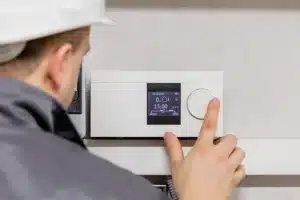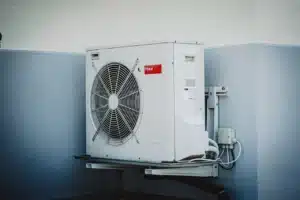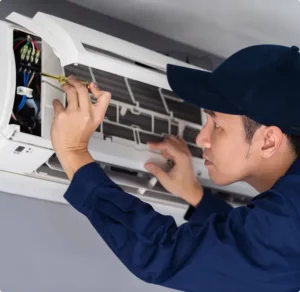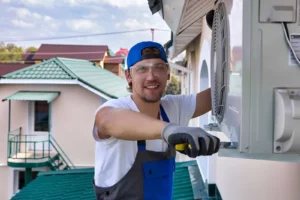Kyzar Celebrates National HVAC Tech Day with Over $5,000 in Cash and Prizes
At Kyzar Air Conditioning, we believe in recognizing the hardworking...
In the heat and humidity of Florida, a reliable air conditioning system is indispensable. Over time, even the most well-maintained AC units will begin to show signs of wear and aging. Knowing when it’s time to replace your old AC system can save you from unexpected breakdowns and discomfort during sweltering summers. Here are key signs to watch for that indicate your AC system may need replacing.
The age of your AC unit is a significant factor in determining whether it’s time for a replacement. Most air conditioning systems have a lifespan of around 10-15 years with proper maintenance. If your unit is approaching or has surpassed this age range, it may be more cost-effective to invest in a new, energy-efficient model rather than continue to repair an aging system.
Have you noticed a steady rise in your energy bills despite consistent usage patterns? Older AC systems often become less energy-efficient over time as components wear out and lose their effectiveness. Newer models with higher SEER ratings can offer substantial savings on your monthly utility costs by using energy more efficiently.
If you find yourself calling for AC repairs more frequently, it may be a sign that your system is nearing the end of its lifespan. While occasional repairs are normal, frequent breakdowns and increasing repair costs can indicate underlying issues that may warrant a replacement. Investing in a new AC system can save you money in the long run by reducing repair expenses.
Do you notice uneven cooling throughout your home or business? Older AC units may struggle to maintain consistent temperatures and airflow, resulting in hot spots or insufficient cooling in certain areas. Upgrading to a new system can improve comfort levels and ensure even distribution of cool air throughout your living or working space.
Unusual sounds such as banging, grinding, or squealing coming from your AC unit could indicate mechanical problems or worn-out components. Similarly, musty or foul odors emanating from the vents may suggest mold or mildew growth within the system. These issues can compromise indoor air quality and indicate the need for a professional assessment and possibly a replacement.
In Florida’s humid climate, your AC system plays a crucial role in regulating indoor humidity levels. If you notice persistent humidity problems despite your AC running, it could indicate that your current system is no longer capable of adequately dehumidifying your home. Upgrading to a newer model with enhanced humidity control features can improve comfort and indoor air quality.
Advancements in AC technology have led to significant improvements in energy efficiency and performance. If your AC system is outdated and lacks modern features such as programmable thermostats, variable-speed compressors, or smart home integration, upgrading to a new model can provide enhanced comfort, convenience, and savings on energy costs.
Recognizing the signs that it’s time to replace your old AC system can help you avoid unexpected breakdowns and discomfort during Florida’s hot and humid months. Whether you’re experiencing frequent repairs, rising energy bills, inconsistent cooling, or other issues mentioned, consulting with a reputable HVAC professional can provide valuable insights and options for upgrading to a more efficient and reliable air conditioning system. Investing in a new AC unit not only improves comfort but also enhances energy efficiency, saving you money in the long term while keeping your indoor environment cool and comfortable.

At Kyzar Air Conditioning, we believe in recognizing the hardworking...

When it comes to maintaining comfort and managing energy costs...

In Florida, where air conditioning is essential for comfort year-round,...

In Florida’s sweltering heat, a reliable air conditioning system is...

In Florida’s hot and humid climate, HVAC systems are essential...

Florida’s warm climate brings many advantages, but it also means...